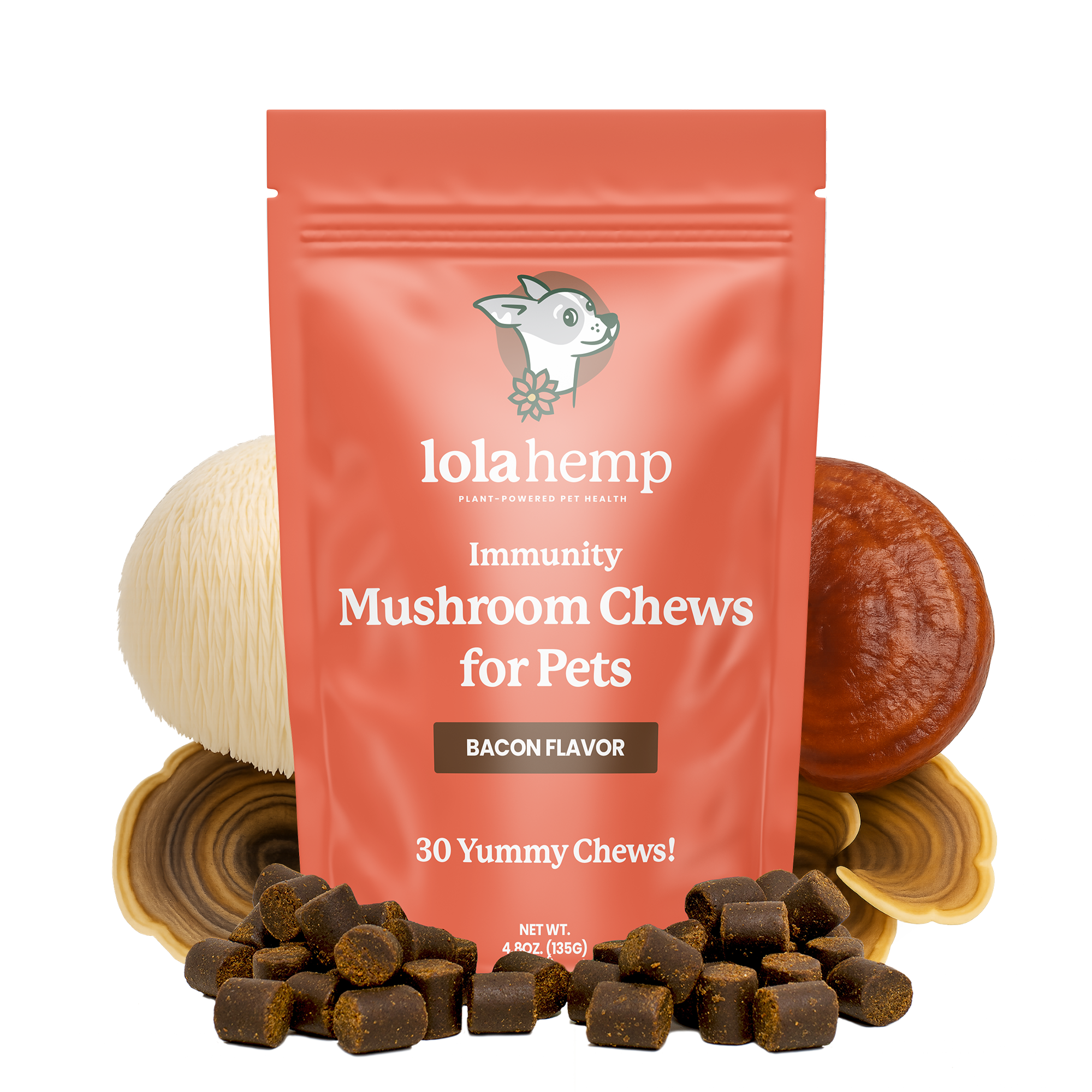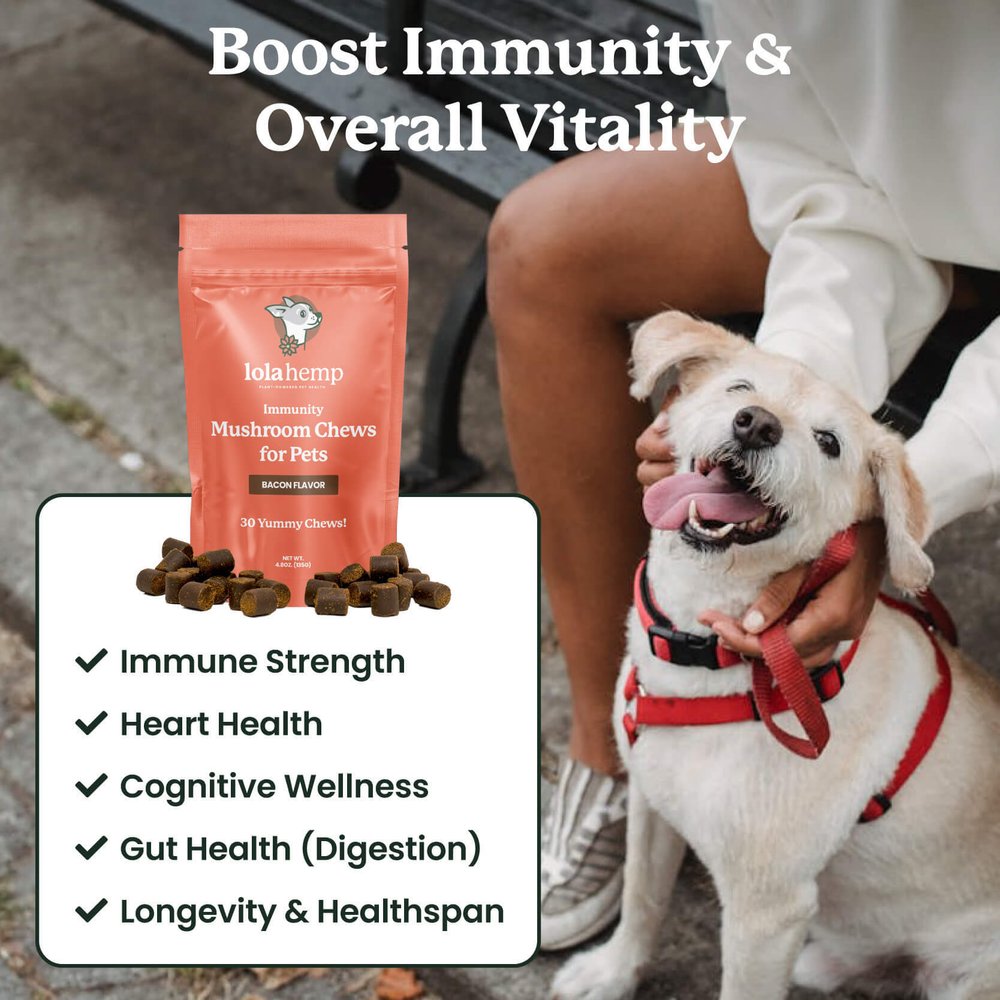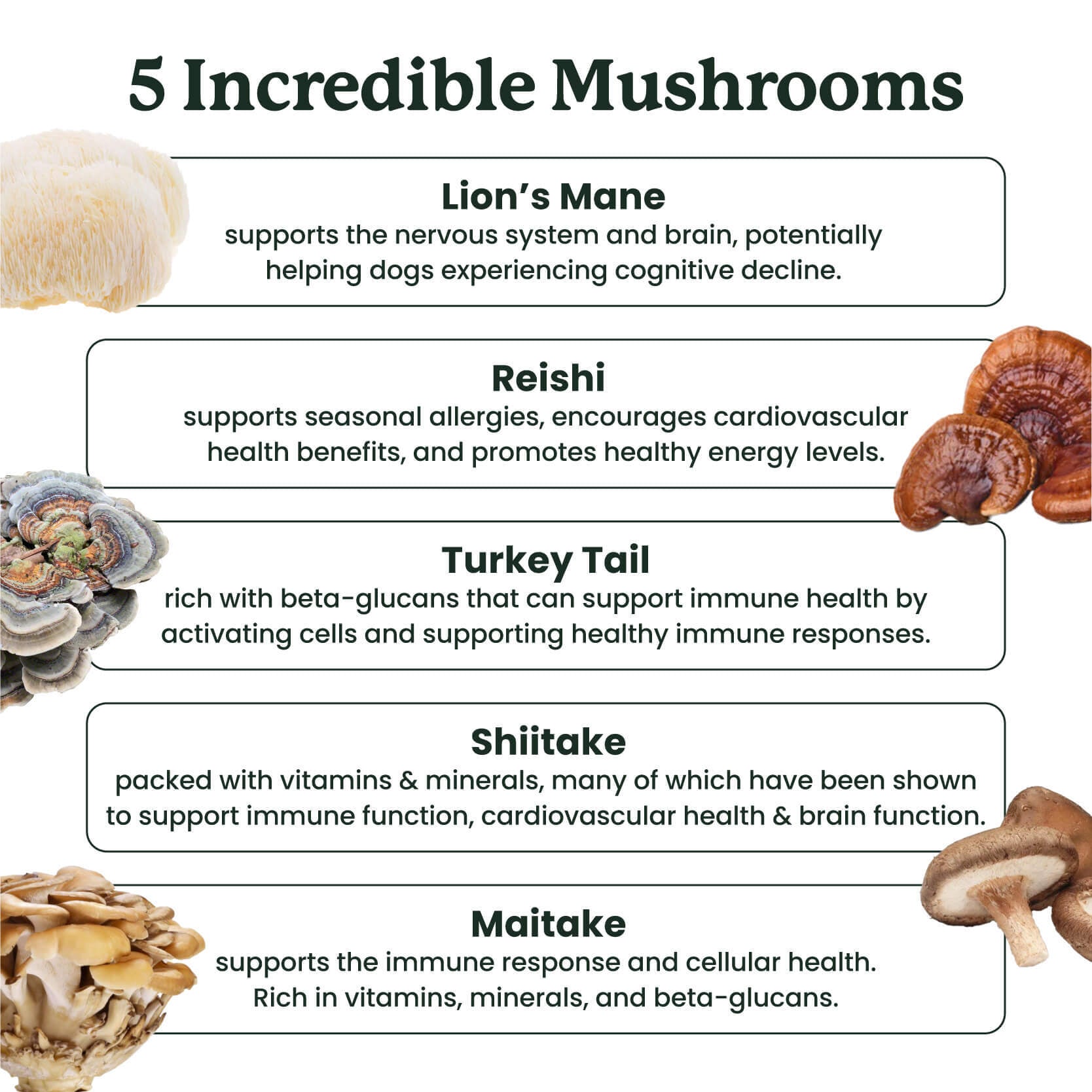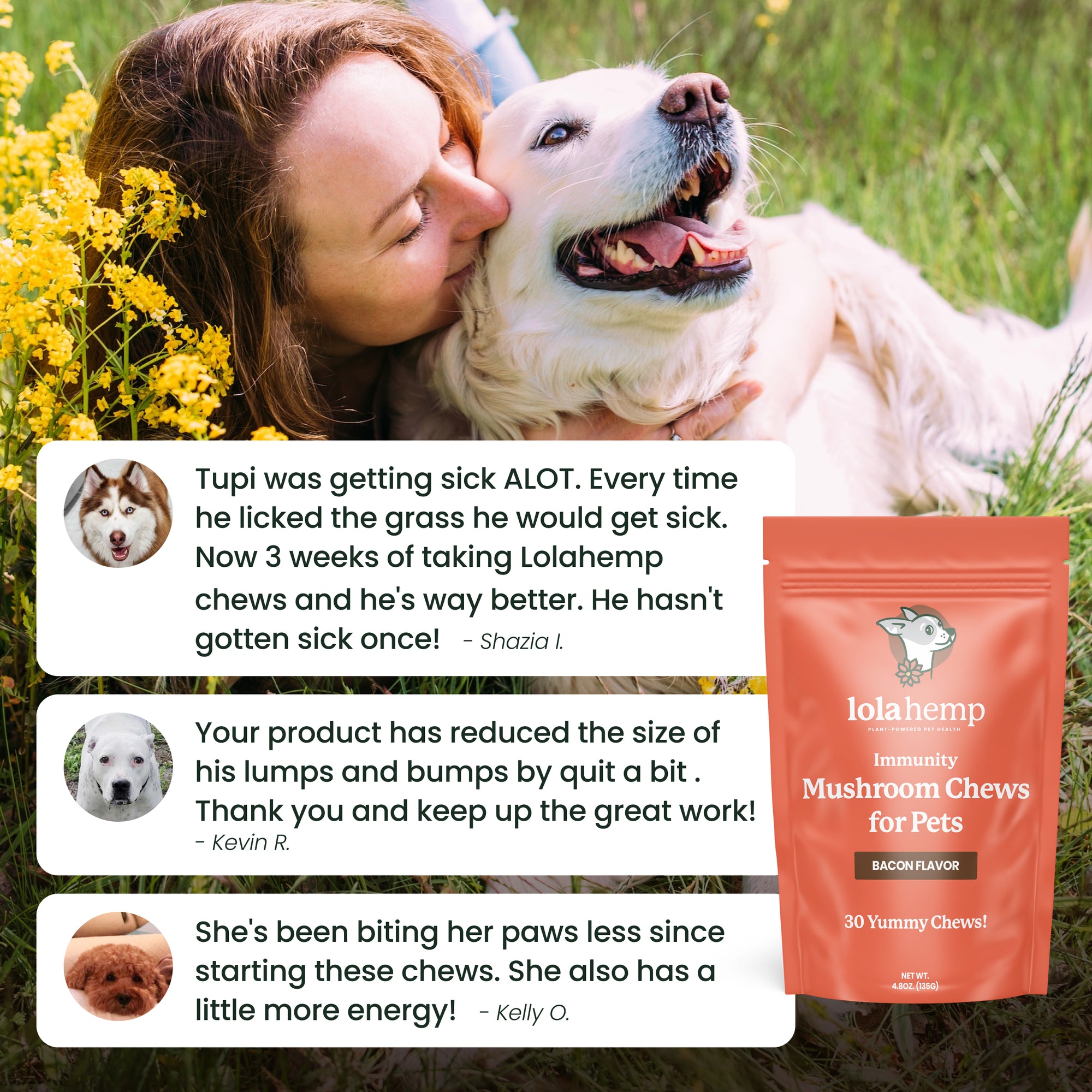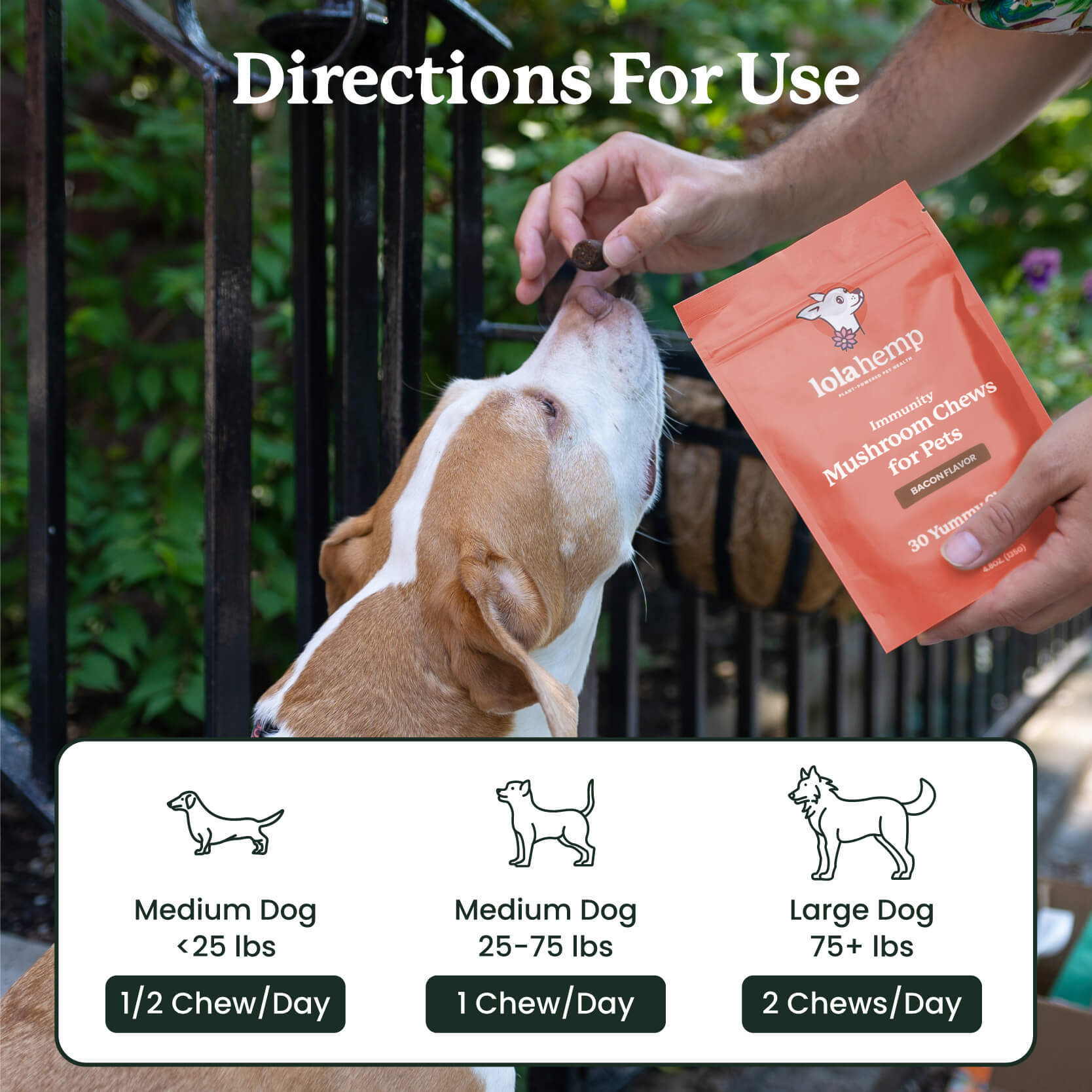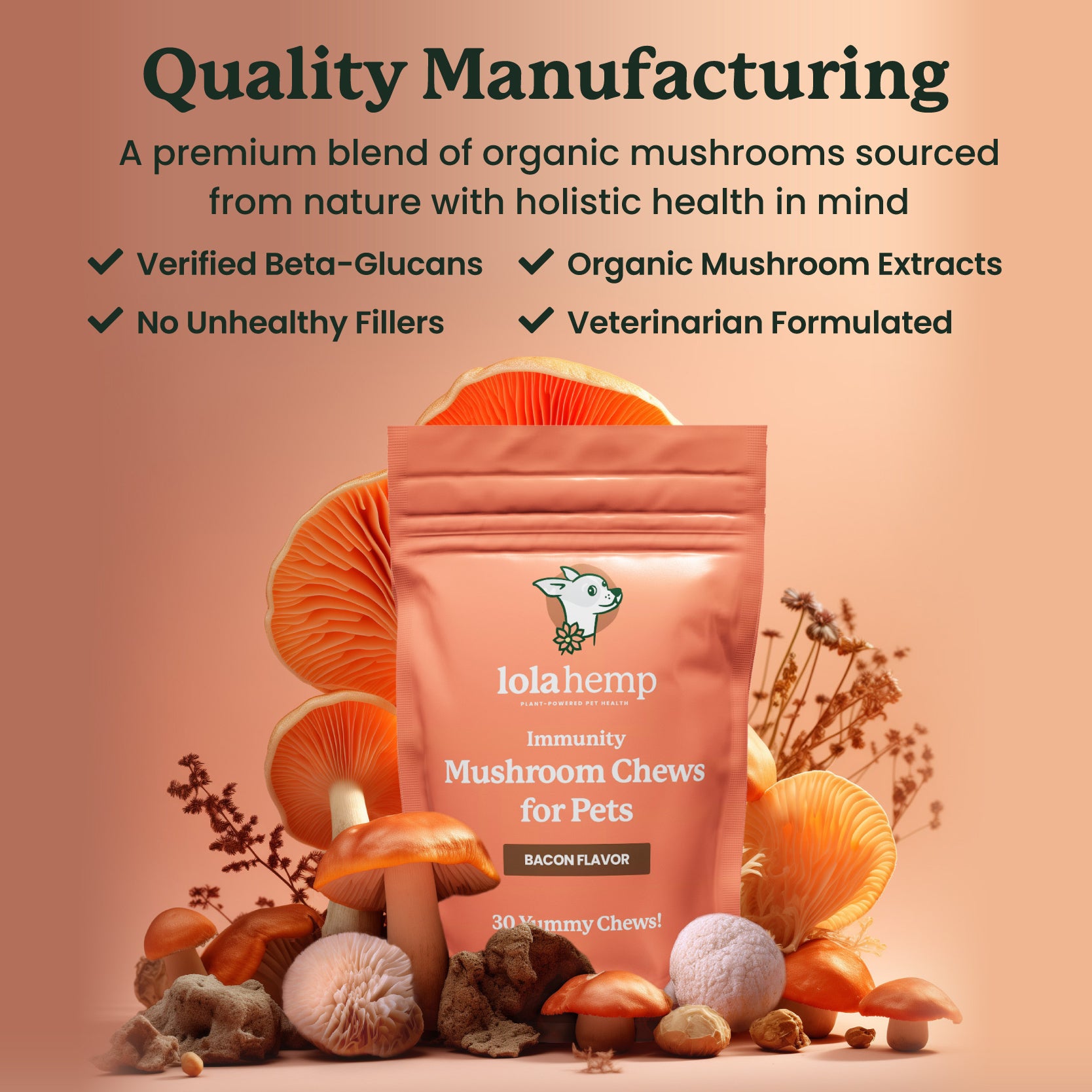Gut health plays a crucial role in your dog's overall well-being. A healthy gut is essential for digestion, nutrient absorption, immune function. However, many dogs suffer from digestive issues like bloating, constipation, diarrhea, or an imbalance in gut flora. Fortunately, certain mushrooms can help promote a healthy digestive system and support gut health.
Mushrooms, specifically those known for their gut-friendly properties, can be an excellent addition to your dog’s diet. Let's explore how mushrooms can contribute to a healthier gut for your furry friend.
Why Gut Health Matters for Dogs
The gut is often referred to as the "second brain" because it influences many aspects of your dog’s health. A balanced gut microbiome is essential for proper digestion, regular bowel movements, and overall immunity. Dogs with gut health issues may experience symptoms like poor coat condition, fatigue, and digestive discomfort.
Maintaining a healthy gut environment helps prevent these issues, and mushrooms can help by promoting a balanced gut microbiome and enhancing digestion.
How Mushrooms Benefit Gut Health in Dogs
Several mushroom species have powerful effects on gut health. Their prebiotic and anti-inflammatory properties can help restore balance to the digestive system and alleviate gastrointestinal issues. Here are a few mushrooms that are especially beneficial for your dog's gut:
- Lion’s Mane Mushrooms: Known for their neuroprotective and gut-regulating properties, Lion’s Mane helps promote healthy gut bacteria and may support the healing of the intestinal lining, improving digestion.
- Reishi Mushrooms: With their ability to reduce inflammation, Reishi mushrooms help maintain gut health by calming irritation and balancing the immune system, which is crucial for digestion and overall gut function.
- Turkey Tail Mushrooms: Rich in prebiotics, Turkey Tail mushrooms support the growth of beneficial gut bacteria, fostering an environment where healthy digestion can thrive.
Including these mushrooms in your dog’s diet could significantly improve their gut health, ensuring better digestion, reduced inflammation, and a more balanced gut microbiome.
How to Safely Add Mushrooms to Your Dog’s Diet
Introducing mushrooms to your dog’s diet should be done carefully and gradually. Follow these tips to ensure the process goes smoothly:
- Select High-Quality Mushroom Supplements: Make sure to choose mushrooms that are organic, free from additives, and formulated for dogs. Quality is key to ensuring the safety and effectiveness of the supplement.
- Start with Small Doses: When adding mushrooms to your dog's food, start with a small amount to monitor for any potential sensitivities or digestive changes.
- Check with Your Veterinarian: It’s always wise to consult your vet before introducing any new supplement, especially if your dog has underlying health issues or is taking medication.
Taking these precautions will ensure that your dog benefits from the digestive health support mushrooms offer without any adverse effects.
How Can You Tell If Mushrooms Are Improving Your Dog’s Gut Health?
While the benefits of mushrooms may take time to manifest, there are a few signs that they are positively impacting your dog’s digestive health:
- More Consistent Bowel Movements: One of the first signs of a healthy gut is regular and well-formed stools. Mushrooms can help regulate your dog’s digestive system and improve stool consistency.
- Less Digestive Discomfort: If your dog is prone to bloating, gas, or discomfort after meals, mushrooms can help soothe their digestive tract and reduce these symptoms.
- Improved Coat Condition: A healthy gut leads to better nutrient absorption, which can result in shinier, healthier skin and fur.
Monitor your dog’s health and digestive habits to gauge how mushrooms are benefiting their gut. Positive changes in their digestion and overall vitality are strong indicators of improvement.
Conclusion
Mushrooms offer a powerful and natural way to promote gut health in dogs. By adding the right mushrooms to your dog’s diet, you can help support their digestive system and improve their overall health.
Be sure to choose high-quality mushroom supplements, monitor your dog’s response, and consult with your vet to ensure that this natural remedy is a good fit for your pet’s needs.
Mushrooms for Dog Health Gut: Frequently Asked Questions
Are mushrooms safe for dogs to eat?
Only certain mushrooms are safe and beneficial. Lion’s Mane, Reishi, and Turkey Tail are commonly recommended, but wild mushrooms should always be avoided.
How long does it take for mushrooms to improve gut health in dogs?
Improvements may be noticeable within a few weeks, but this varies by dog. Consistent use often provides the best results.
Can mushrooms help dogs with chronic digestive issues?
Yes. Mushrooms with prebiotic and anti-inflammatory properties may support dogs with conditions like bloating, diarrhea, or irregular stools.
What is the best way to give my dog mushrooms?
High-quality dog-formulated mushroom supplements are the safest option. Always start with small doses and consult your veterinarian.
Can mushrooms replace probiotics for dog gut health?
Mushrooms don’t replace probiotics, but they can complement them by supporting gut lining health and feeding beneficial gut bacteria.

